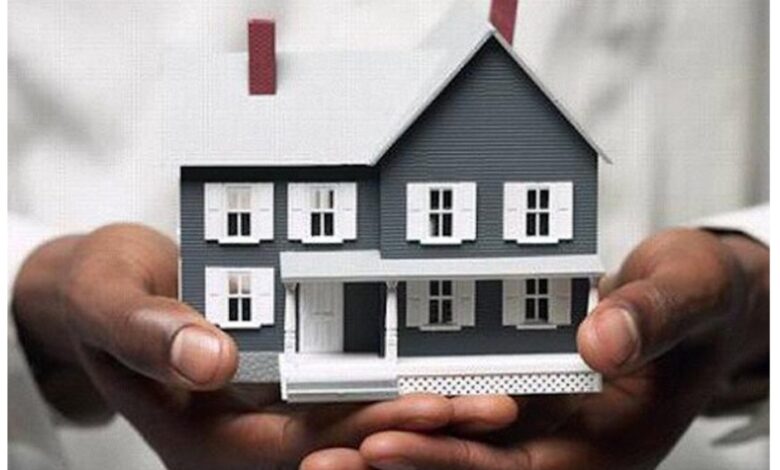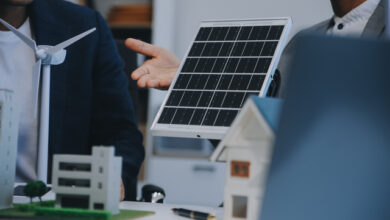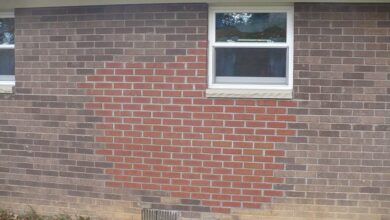Smart Homes And Smarter Choices: Navigating The Path To Homeownership

In the fast-paced digital age, the concept of a home has transcended its traditional boundaries. No longer confined to bricks and mortar, homes have evolved into intelligent living spaces known as “smart homes.” This paradigm shift is not only revolutionising the way we interact with our living spaces but also redefining the essence of home ownership itself. In this article, we delve into the intriguing realm of smart homes, exploring their definition, the escalating integration of technology within residential spaces, and the profound connection that ties smart homes to the modern notion of home ownership. For further reading, those interested in renting a smart home can also visit https://house-rent.info/ for more information.
I. Growing Integration Of Technology In Homes
The 21st century has witnessed an unprecedented surge in the integration of technology into our daily lives, and homes have emerged as a focal point of this phenomenon. With the advent of the Internet of Things (IoT), devices can communicate and exchange data, leading to a harmonious symphony of interconnectedness within living spaces.
Smart home technology extends beyond mere convenience, offering tangible solutions to modern challenges. Picture a refrigerator that keeps track of your groceries and sends real-time updates to your smartphone, ensuring you never miss an essential item at the store. Imagine a security system that not only monitors your home but also allows remote control via smartphone, empowering homeowners to keep a watchful eye even when miles away.
Connection Between Smart Homes And Homeownership
The relationship between smart homes and home ownership is akin to a symbiotic bond, wherein technological innovation and the very concept of possessing a home intertwine. Aspiring homeowners are increasingly recognizing the value of smart home features when making purchasing decisions. Properties equipped with state-of-the-art smart technology not only offer a futuristic living experience but also hold the promise of long-term cost savings through optimised resource management.
Moreover, smart homes introduce a new dimension of interaction between homeowners and their dwellings. The ability to control various aspects of the home environment remotely fosters a sense of empowerment and engagement. Home ownership, once characterised by static structures, now involves dynamic participation in managing, customising, and securing one’s living space.
II. Integration Of Smart Home Tech In The Homebuying Process
In the ever-evolving landscape of real estate, the integration of smart home technology has emerged as a pivotal factor in the homebuying process. With the fusion of cutting-edge innovation and real property, prospective homeowners are navigating a new terrain where smart home features wield a remarkable influence. This section explores the multifaceted role of smart home technology in real estate transactions, encompassing its impact on property value, the intricate process of inspections and appraisals, legal considerations, and the art of negotiation when it comes to incorporating smart home tech into the deal.
A. Impact Of Smart Home Features On Property Value
Smart home technology has not only redefined the way we live but has also revolutionised property valuations. Modern homebuyers are increasingly recognizing the added value that comes with a home equipped with smart features. A study by the National Association of Realtors found that homes boasting smart technology tend to sell faster and at potentially higher prices. Features such as smart security systems, energy-efficient appliances, and integrated home automation systems can significantly enhance a property’s desirability and perceived value.
B. Smart Home Inspections And Appraisals
As the technological landscape of homes evolves, so do the methods of inspecting and appraising them. Smart home inspections go beyond the traditional checklist, encompassing a comprehensive evaluation of integrated systems. Home inspectors now need to possess a nuanced understanding of Wi-Fi networks, home automation hubs, and sensor-based devices. This shift underscores the importance of hiring professionals who are well-versed in the intricacies of smart home technology, ensuring that all components are functioning optimally.
Appraisals, too, have adapted to the smart home revolution. Appraisers must account for the value added by features like smart thermostats that contribute to energy savings or automated lighting systems that enhance convenience. This evolution aligns with the growing recognition of the tangible benefits that smart home technology brings to the table.
C. Legal Considerations And Disclosures
The integration of smart home technology introduces a layer of complexity to real estate transactions, necessitating attention to legal aspects and disclosures. Sellers are often required to provide comprehensive information about the smart home systems in place, ensuring that buyers are well-informed about the technology they are inheriting. Legal considerations extend to matters of data privacy and security, as connected devices collect and transmit personal information. Addressing these concerns transparently is essential to foster trust between buyers and sellers in the digital age.
D. Negotiating Inclusion Of Smart Home Tech In The Deal
Negotiation skills take centre stage when it comes to determining whether smart home technology will be included in the sale. For buyers who value the convenience and efficiency offered by smart features, negotiating for their inclusion can be a strategic move. Conversely, sellers can leverage the appeal of their property’s smart technology as a unique selling proposition. It’s essential for both parties to have a clear understanding of the value associated with the technology and its impact on the overall transaction.
III. Future Trends In Smart Homes And Homeownership
Expansion Of Smart Home Ecosystems
The future of smart homes is interconnectedness. Currently, smart devices operate within their specific domains – thermostats control temperature, cameras oversee security, and voice assistants manage tasks. However, the future will see these devices converging into unified ecosystems, working harmoniously to create a holistic living experience.
Imagine a scenario where your morning alarm triggers the lights to gently brighten, the coffee maker to start brewing, and the shades to open, all synchronized to wake you up naturally. Such integrated ecosystems will not only streamline daily routines but also optimise resource usage, leading to increased energy efficiency and cost savings.
Focus On Sustainable And Eco-Friendly Technologies
The future of smart homes aligns with the global shift towards sustainability. Homeowners are increasingly seeking eco-friendly solutions, and smart homes are well-positioned to answer this call. The integration of renewable energy sources such as solar panels, coupled with smart energy management systems, will empower homeowners to reduce their carbon footprint and energy bills simultaneously.
Beyond energy, water management will also take centre stage. Smart irrigation systems will adjust watering schedules based on weather forecasts and soil moisture levels, ensuring efficient water usage for landscaping. Waste management will also benefit from smart technology, with garbage bins signalling when they’re full and autonomous systems sorting recyclables from trash.
IV.Conclusion
The path to seamless smart homeownership is illuminated by the understanding that technology is a powerful tool meant to elevate our living experiences. By embracing innovation while exercising caution, homeowners can revel in the convenience and efficiency that smart homes offer. These interconnected spaces not only mirror our modern values but also serve as a testament to our adaptability and foresight. As the realm of smart technology evolves, the future of home ownership is undoubtedly entwined with the endless possibilities that smart homes bring. To ensure your home is well-protected and up-to-date with the latest in home automation, it’s important to consider getting the right insurance for your home. To learn more, be sure to check out.
Frequently Asked Questions (FAQ)
1. What are smart homes, and how do they relate to home ownership?
Smart homes are residences equipped with advanced technology that allows for automation, control, and monitoring of various functions. Home ownership with smart technology means integrating these systems for enhanced energy efficiency, security, and convenience.
2. What benefits do smart homes offer to homeowners?
Smart homes offer increased energy efficiency, cost savings through automated systems, improved security with remote monitoring, and enhanced convenience via voice-controlled devices and smart appliances.
3. Are there any downsides or challenges to consider when adopting smart home technologies?
Yes, there are initial setup costs, privacy concerns regarding data collection, compatibility issues between different devices, and the potential for devices to become outdated over time.
4. How do smart homes affect the value of a property?
Smart home features can increase a property’s value by making it more attractive to potential buyers, especially those seeking energy efficiency, security, and modern conveniences.
5. Can I retrofit an existing home with smart technology, or do I need to build a new smart home from scratch?
Both options are viable. Retrofitting involves upgrading existing systems with smart technology, while building from scratch allows you to integrate smart features seamlessly into the design.



